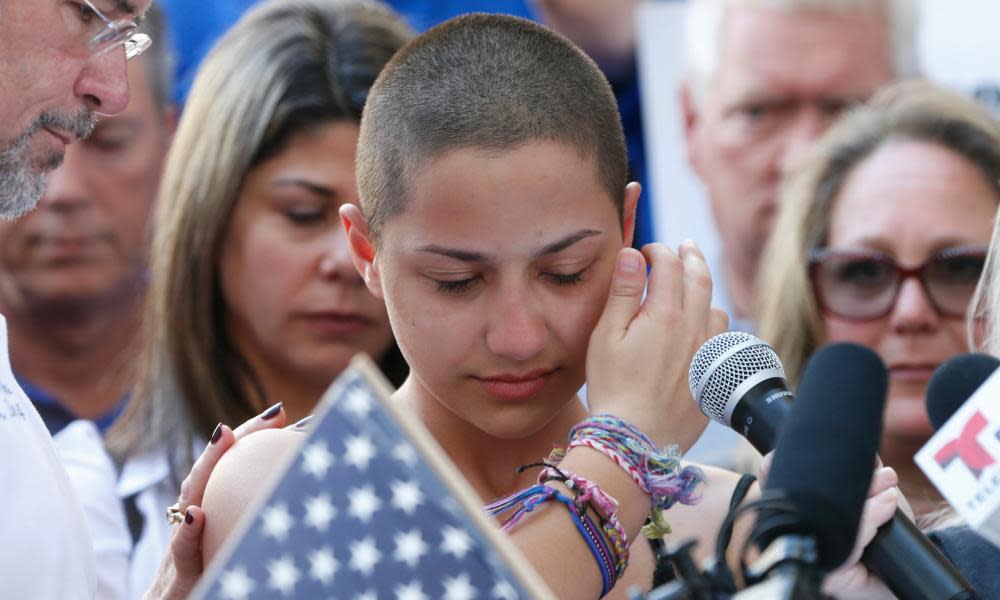The Guardian view on US gun laws: listen to teenagers, not Trump

Mass shootings occur nine out of 10 days in the United States, and seven American children or teenagers are shot dead daily. Though the death toll was so high in last week’s Florida high school shooting, and the horror felt so deeply, there seems to be more surprise at the outpouring of anger and action from young people than at the massacre itself. On one estimate, 150,000 school pupils have experienced a shooting on campus since Columbine in 1999. In these circumstances, such atrocities can come to be seen as almost inevitable – appalling, but the way things are.
Teenagers are insisting that cannot be. First came the boldness, courage and urgency of survivors, vowing “we are going to be the last shooting”; confronting Marco Rubio over NRA cash; chastening politicians: “We’re children. You guys are the adults.” Then the engagement of their peers: walking out of classes and marching on the Florida state capitol and to the White House.
Recent history gives little reason to be optimistic about their campaign. The gun lobby has succeeded in presenting mass gun ownership as a foundational element of American life, long sanctified and protected by the second amendment. The NRA’s own past gives the lie to this. In the 1930s, its president criticised “the general promiscuous toting of guns”, saying it should be “sharply restricted”. The interpretation of the right to bear arms as a matter of individual and not collective defence gained ground only after years of lobbying, and came as firms found new custom by promoting firearms as essential for personal protection.
“The only thing that stops a bad guy with a gun is a good guy with a gun,” the NRA’s head repeated in an aggressive speech on Thursday. Donald Trump’s proposal to arm some teachers is the logical outcome of this argument. It is also absurd. The Florida high school had an armed guard. Self-defence arguments have led to the US having more guns than any other country, and gun laws being loosened – yet it has more gun deaths than any other developed nation.
The momentum of students and supporters may ebb. The national anguish that followed the murder of children at Sandy Hook in 2012 produced minimal material change. Yet Democrats have begun to shift in rhetoric at least, however cautious they have been in taking action. Public support for gun control appears to be rising. Mr Trump tweeted that he would be “strongly pushing” to end the sale of bump stocks, which allow faster firing, and raise the purchase age to 21 – though no one is holding their breath and his next tweet lauded the NRA, which opposes both.
These deaths take place amid the broader sense, with Mr Trump’s rise, that something is very wrong in America and that real resistance, not tinkering and timidity, is needed to address it. That means a demand for more fundamental changes to gun laws, but could also help to create a more compelling narrative for a shift, offsetting the NRA’s battle cry of freedom with an emotional appeal to security and community. Gun culture was built over decades. Dismantling it will be a process, not a moment – if it happens at all. Outrage does not guarantee change, or even make it likely. But change won’t happen unless there is outrage.

 Yahoo News
Yahoo News 
